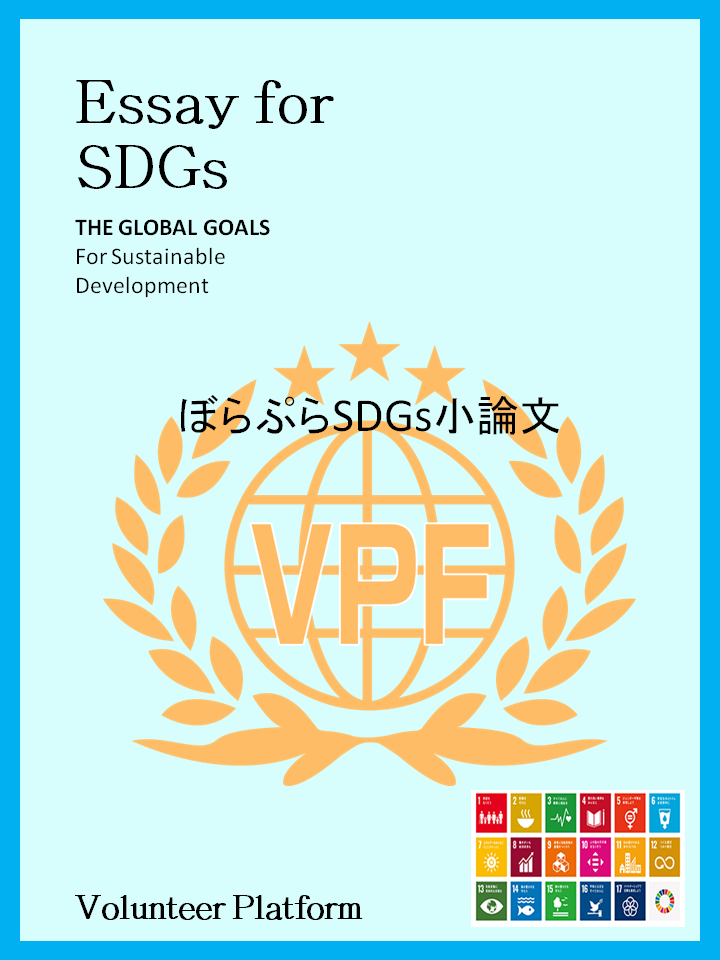[ぼらぷらSDGs小論文]

『The paradigm shift in Happiness』
小論文
『The paradigm shift in Happiness』
While environmental problems and immutable inequalities are often being dealt with in the news, our lives in Japan are becoming increasingly wealthier in parallel to technological advancements. We are surrounded by a plethora of available products, and as long as we are able to pay for them, they can be used, and live a prosperous life of consumption. However, the production and distribution of these products are outsourced to someone else. And, importantly, this outsourced labor is made invisible to us by the complex division of labor and industrialization. For example, when we pick up a piece of meat on a supermarket shelf, we can tell from its freshness and price that it is a good buy, but we are unaware of how the animals behind it were killed and slaughtered for meat. In a capitalist society, cheap commodities are a great stimulus to consumer demand. Companies take advantage of this invisibility of labor and reduce the cost of production at some sacrifice in order to give special value to their products and gain profit. Needless to say, this is at the sacrifice of the laborer and of the global environment. In response to this, a number of theories have been put forward and there is a growing movement calling for major systemic reform. However, the reality is that such major reforms are difficult to achieve and remains as theories. Here, I would like to propose a shift in the concept of happiness associated with individual consumption, rather than with the social system. In other words, I would like to solve the environmental problems and inequality by adding not only the price and use-value of an object but also its production process and future usability to the evaluation axis of the product. Environmental problems and inequalities are, actually, inevitable in a capitalist society and, strictly speaking, they cannot be eradicated. There is no doubt that they are now growing to an unacceptable extent and need to be amended.
One industry that is associated with inequality and environmental problems is the production of cotton. It is said that it takes 2,700 liters of water to make one shirt. The production of cotton, which requires large amounts of water for its growth, is carried out in areas with scarce water resources, such as India. This country has a significant impact on the local population and animal life. There are also problems of environmental pollution caused by pesticide spraying and child labor, which is often forced to work for low wages to supplement the labour force.
Organic cotton production and fair trade initiatives are now being used to address these issues. Organic cotton is cotton that has been produced without the use of pesticides, which is not polluting the environment, protects the health of the grower, and requires 91% less water than conventional cotton.
These products can be a little more expensive than conventional products. We can buy more of them than we can of conventional products. But by valuing and adding new value to the production process, we can shift the happiness from consumption to valuing and using the production process, and by supporting these initiatives, we can help to build a sustainable society that leaves no one behind.
This new cotton production initiative is just one example. We can change the system little by promoting these initiatives in all sectors and by making these products our active choice. The end result will be a world where everyone can live a life of material well-being and a mentally happy life.





 LINE相談
LINE相談
